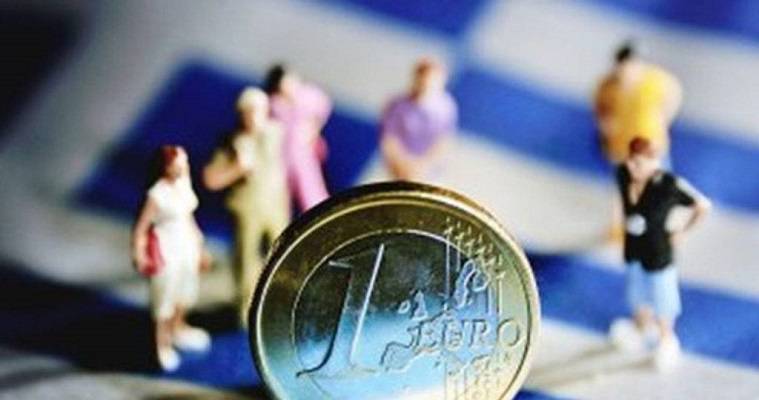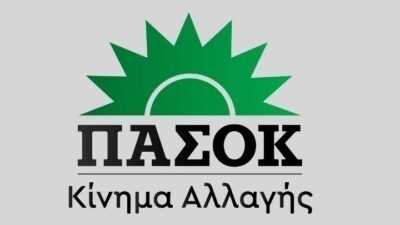Stavros Lygeros: The triple blow – The Greek economy is evolving into a zombie
28/12/2020
From the time of the Memoranda, the Greek economy had been obligated to produce a primary surplus of 3.5% of GDP until 2022 and then, until 2060, a surplus of 2.2%. The pandemic suspended the fulfillment of this Greek obligation, as well as other general fiscal obligations of all Member States. This “breathing space”, however, is very expensive, since lockdowns have brought all European economies to their knees and the Greek economy may yet evolve into a zombie.
This is especially true for the Greek economy, which is still very vulnerable. The resources from the Recovery Fund are undoubtedly significant and under certain conditions can serve as an opportunity. There are, however, great doubts about the ability of the government and the state at large to channel resources where they will really fuel a growth dynamic. It is very likely that they will be channeled in the wrong direction either due to EU directives tailored to German export needs or due to entanglement with domestic oligarchs.
The commitments, however, will return when the pandemic has subsided. And they will find the economy on its knees. Especially small and medium enterprises that are the backbone of Greek society. Following the massive shutdowns caused by the memoranda period, the coronavirus is expected to wipe out tens, if not hundreds of thousands of small and medium-sized enterprises, especially in the catering and retail sectors, which have been comparatively hardest hit.
The lack of liquidity had become an endemic phenomenon since the Memoranda era and was exacerbated by the economic hardships imposed by the Tsipras government especially on small and medium-sized enterprises, among others, to finance its policy of favoring the poor. Lockdowns will be a shot in the arm for many such businesses, but they will also turn many more into zombies, in the sense that it will leave no room for them to get back on their feet.
On the edge of the cliff
According to official EU data, in 2019, 22.2% of Greeks survived in poverty. It is no wonder, then, that taxpayers’ arrears to the public were rising at a high rate. To this, we must add the growing unserviced debts to insurance funds and banks. Red loans have now become a cancer for the banking system.
This practically means that a large number of households and businesses are unable to meet all their obligations. The seizure of deposit accounts and the launch of real estate auctions have been a powerful means of putting pressure on debtors. The fact that seizures and auctions were finally carried out is the unwavering proof that more and more citizens were falling off the cliff and were not malevolent defaulters. The fact that there are such does not mean that we will may construe exceptions as being the rule.
Many households and businesses, therefore, were on the brink of collapse. They exhausted all the margins to barely meet their obligations, but many failed. At the same time, large healthy companies left Greece in search of cheaper financing, but also to avoid the effects of the uncertainty, which continued to hover over the Greek economy. Uncertainty, which acted as an additional disincentive for new foreign direct productive investments, but also for business initiatives by young scientists.
The change of government
The change of government in July 2019 did not substantially change the situation despite the rhetoric to the contrary by the “blue” government. Until the coronavirus broke out, Mitsotakis had been at the helm of the country for about eight months. The time was not long, but neither was it short. The important thing is that there were no signs during this period that the economy was entering a phase of recovery, e.g. with the advent of foreign direct investment.
The first lockdown, then, hit an economy that continued to drag its feet. The blow was great, but it was overshadowed by the fact that Greece did very well in dealing with the pandemic. With this air, the government “opened” the borders in the summer, while the very good image of Greece internationally allowed a more targeted tourism policy, in order to attract a high-income level of visitors.
Ultimately, tourism revenue in 2020 was a fraction of that of 2019. Even so, as a rule, tourism businesses avoided collapse. The price, however, was very heavy. Foreign tourists and foreign workers in northern Greece, combined with the general climate of relaxation, fueled the deadly second wave of the pandemic and the second lockdown.
A dark horizon
This has dramatically worsened the situation of already overburdened enterprises, especially small and medium-sized enterprises, which have not been able to compete with e-commerce. At the same time, it has dramatically worsened the situation of workers, especially in the sectors that have been hit hardest. It is a given that when we start getting out of the tunnel caused by the pandemic (estimated around Easter) GDP will have shrunk and unemployment will have skyrocketed, with the result that a new batch of small and medium-sized households has fallen off the cliff.
This is the real picture for at least the first half of 2021 and no propaganda rhetoric can change it. The imposition of austerity measures in all previous years had only succeeded in stabilizing the Greek economy at a very low level, so low that it could not support the fundamentally decent standard of living of the lower-income strata.
The new vertical decline in GDP due to the pandemic, after its cumulative contraction of 25% in the years of the Memoranda, is the second consecutive heavy blow to the Greek economy. And because there are no signs that a wave of foreign direct investment will emerge from the summer of 2021 onwards, it is likely that the expected upward movement of GDP after exiting the pandemic will be much lower than its previous second fall.
The Greek economy is becoming a zombie
This could turn the entire Greek economy into a zombie, as it will be called upon to return to the production of high primary surpluses, which will de facto dehydrate the already denuded real economy for other reasons. Unless the government refutes the negative forecasts and manipulates EU funds in a way that changes the context in which the Greek economy traditionally moves.
The only way for Greece to be able to get back on its feet and somehow meet its huge public debt is to enter a path of dynamic growth. The precondition for this is not only the dissolution of the climate of uncertainty, which kills the economy, but also the creation of favorable conditions for large productive investments.
Investors are not only interested in low labor costs and cuts in labor rights. These, after all, have largely already taken place. In the case of Greece, they are much more interested in a number of other factors, such as the clear economic horizon, fixed rules, the reduction of bureaucratic procedures, and the reduction of taxation.
It would be an omission not to add that the “sword of Damocles” which the debt represents acts indirectly but clearly prohibitively from encouraging serious foreign direct investment. This means that without a new brave regulation by the Eurozone, Greece will be doomed to live in subsistence. The most important international economic institutes converge on the position that the haircut (not only the restructuring) of the Greek debt is a condition for recovery.





